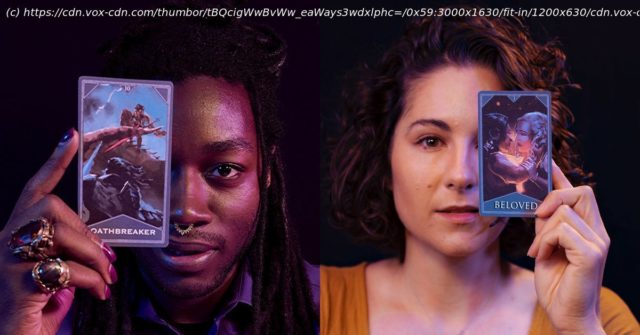Getting a group together for D&D is hard, but running a satisfying campaign is even harder. Gabe Hicks’ latest effort is The Session Zero System, designed as a game to play before you game. It joins the panoply of great pre- and post-game tools for TTRPG groups.
One of the true joys of tabletop role-playing games is creating a character, someone to inhabit at the table alongside your friends. But rarely do players and game masters spend enough quality time meshing those characters together before leaving the tavern for their first adventure. Professional game master and designer Gabe Hicks and their team at Mythic Grove Productions want to change that. The team’s next project is a game called The Session Zero System, a tarot-based pre-game tool that could soon join the ranks of The Quiet Year and World Ending Game as role-playing essentials.
A “session zero” traditionally refers to time that a soon-to-be role-playing group spends together before actually playing the first session of a one-shot or a campaign. It’s a space to talk about safety at the table, to delineate ways to ensure that everyone is comfortable and engaged with the material and the situations being presented. But it’s also a time to build the party itself into something more than a compilation of disparate classes, backgrounds, lethal weapons, and magic spells. It’s a golden opportunity to build community, but often one that newbie Dungeon Masters overlook.
“I like session zeros in the sense of getting an idea of what everyone wants to play — the kind of game everyone wants to experience,” Hicks said during a recent interview with Polygon. “Something that’s been really important to me is players having a little bit about each other’s characters so that we build off of them. I have found that in the session zero, when you don’t talk about your characters with each other — like goals and aspirations and stuff like that — you end up not highlighting each other’s moments.
Start
United States
USA — software Build stronger D&D parties with The Session Zero System, a novel tarot-based...






